- News
- Reviews
- Bikes
- Accessories
- Accessories - misc
- Computer mounts
- Bags
- Bar ends
- Bike bags & cases
- Bottle cages
- Bottles
- Cameras
- Car racks
- Child seats
- Computers
- Glasses
- GPS units
- Helmets
- Lights - front
- Lights - rear
- Lights - sets
- Locks
- Mirrors
- Mudguards
- Racks
- Pumps & CO2 inflators
- Puncture kits
- Reflectives
- Smart watches
- Stands and racks
- Trailers
- Clothing
- Components
- Bar tape & grips
- Bottom brackets
- Brake & gear cables
- Brake & STI levers
- Brake pads & spares
- Brakes
- Cassettes & freewheels
- Chains
- Chainsets & chainrings
- Derailleurs - front
- Derailleurs - rear
- Forks
- Gear levers & shifters
- Groupsets
- Handlebars & extensions
- Headsets
- Hubs
- Inner tubes
- Pedals
- Quick releases & skewers
- Saddles
- Seatposts
- Stems
- Wheels
- Tyres
- Health, fitness and nutrition
- Tools and workshop
- Miscellaneous
- Cross country mountain bikes
- Tubeless valves
- Buyers Guides
- Features
- Forum
- Recommends
- Podcast
feature
 2022 Specialized S-Works Crux-16.jpg
2022 Specialized S-Works Crux-16.jpgFirst Ride Review: 2022 Specialized S-Works Crux gravel bike
Specialized has a new Crux, the first redesign of its popular cyclocross race bike in years, and the 2022 model has changed its tune a little. In comes a bunch of tube shapes that were heavily influenced by Specialized's superlight Aethos road bike, space for whopping 47mm tyres and a new focus on performance gravel riding.
With a frame weight of just 725g, it can be a proper cyclocross racer too. In fact, what it really is, is an Aethos that likes to roll around in the mud.
> If you'd like more detail on the tech, that's this way
Handling feels familiar
My first ride on the S-Works Crux was 2.5 hours in the unfamiliar surroundings of Dorking, Surrey, in the first biblical rain of autumn. We covered wet, chalky rock that was like ice, sandy soil, deep clay mud and approximately a million water-filled craters. Of the whole ride, about half a mile was on-road so as first rides go, I’d say that this one was pretty thorough.
It may well be because I spent a fair amount of time on the Aethos, but the handling instantly felt dialled. I was so relieved to find the flickable slow-speed handling that cyclocross bikes need which was a big help as we made our way up the first of many climbs of the day. This climb was chalky and super slippy, so quick changes of line were needed to keep the bike going uphill. The Crux handled this beautifully.
The stock Crux bikes will all come with the Pathfinder tyres that I had on this bike. That’s a pretty gravelly setup in my books and those big tyres were excellent as soon as we began to head back down the hill on some smooth singletrack with the occasional tree root to throw you off.
While the Crux now has ample room for big tyres, the geometry hasn’t suffered because of it. The 54cm model that I rode in Dorking showed a clear move towards what Specialized has termed ‘progressive gravel geometry’. The frame reach has gone from 382mm to 388mm with the distance to the handlebar being drawn back by a shorter stem that offers quicker handling. The front centre has gone from 605mm to 608mm and the BB drop has increased from 69mm to 72mm; if bigger tyres lift you further skyward, the increased BB drop moves you back down a little.
The seat tube angle gets ever so slightly steeper, going from 73.5º to 74º, while the head tube angle remains at 71.5°.
The result is a bike that I found to be a bit more stable at speed than a traditional cyclocross bike, but nowhere near as dull on the technical stuff as an adventure-focused gravel bike. I think Specialized has split the difference very nicely, but I’ll reserve full judgement until I’ve raced the bike on a proper cyclocross course and spent more time riding on gravel.
Lightning-fast when climbing
The Aethos employed a jazzy new supercomputer design process and the result was that Specialized was able to do away with what they were calling ‘lazy fibres’ – ones that didn't earn their place by being loaded and tense. Now, when you’ve got a new toy you want to play with it and so the supercomputer has been rolled out again for the redesign of the Crux.
As with the Aethos, there is no real focus on aerodynamics here so, as you probably won’t be surprised to see, the Crux does look a lot like the Aethos. It is also feathery on the scales with a claimed frame weight of 725g. On my first ride, the S-Works model, with its SRAM Red eTap AXS groupset and carbon Roval Terra CLX wheels, was noticeably very good for really batting it uphill.
In fact, Specialized claims that the Crux is the lightest gravel bike in the world in this build – just 7.25kg. That’s all well and good, but are there weight weenie gravel riders? Seeing as many roadies have made the jump onto the dirt, there probably are.
On a side note, the frame that the Pro, Expert and Comp models uses comes in at just 100g heavier, so it should be easy to get a relatively lightweight bike on any of the builds.
Tyre clearance
I am a firm believer that, love it or hate it, gravel is the discipline that is paving the way for road and cyclocross bike tech. It wasn’t always like this. For a few years, as gravel developed, brands would simply edit their cyclocross bike in an attempt to capture a bit of the growing gravel market. That made many CX bikes too tall, too slack and generally just dull to ride for cyclocross, but as gravel has developed and diverged, ‘cross bikes are coming out the other side with some of the better tech leftovers.
The big one for me, as a keen CX racer, is the tyre clearances that we now have available. Put a UCI-legal 33mm tyre on a bike such as the new Crux or Cannondale’s SuperSix CX and you’ve got a massive space around the tyre for mud to clear effectively. The reason that this is beneficial to you and me comes about 40 minutes into any muddy race. A bike with closer clearances would have jammed up with mud by this point and you’d be wishing that you had a second bike in the pits.
As I’m sure is the case for many of you too, I can only afford one cyclocross bike, so if that bike can function correctly for an entire race, I’m going to do better than if the wheels stop turning.
That’s the theory, anyway. As soon as I can get this bike into the back end of a ‘cross race, I’ll let you know how it works.
That generous tyre clearance is also naturally a bonus for gravel riding. The extra volume of big tyres meant that a 2.5-hour off-road ride didn't leave me feeling beaten up and while riding, the composure that the wide tyres afford results in fewer scary moments.
Call me a Luddite (or simply an unskilled road rider), but if I was heading off to regularly ride anything more technical than I did in the Surrey Hills then I’d be leaning towards a cross country mountain bike. For what we were riding, which was fast mixed surfaces, technical climbs and smaller roots/rocks, the 38mm Pathfinder was plenty of tyre but with space to go up to 47mm, you can spec to your local conditions, terrain and your riding style.
Ride quality
Specialized has made a big thing about the Aethos's ride quality. In my time riding both the S-Works and Pro models, I was reminded of road bikes of the pre-aero era. The Aethos doesn’t clatter its way over the average road surface and that is something that Specialized says that it has tried to replicate with the new Crux.
On this one, I’m going to withhold my judgement. We didn't appear to take in any overly harsh surfaces on our ride, but it could have been that the bike was isolating me from those small shocks. I'll head out in search of some bumpy gravel roads when we get the bike in for a full review.
The frame features suggest that compliance, especially at the rear end, should be very good. The frame uses a similarly squashed double triangle with a sloping top tube flowing into the thin seatstays. This exposes plenty of seatpost which should mean plenty of comfort.
So what’s it actually for?
The growth in gravel as a discipline and the diversity of the genre means that it's not possible to have one bike that's perfect for all riding scenarios. Like road has lightweight, aero and endurance bikes, gravel is now developing to a point where pretty much every brand has a performance/race gravel bike alongside something for adventure riding and the bike packer types.
The Diverge is Specialized’s offering for the latter and on initial impressions, I think the Crux will be an easier sell to road riders that want to veer off-road occasionally. The weight and straight-line speed make it very attractive, as does the geometry that isn't overly slack.
If you’re one of these road riders and you’re looking for a fast gravel bike that you can point at a cyclocross race with a simple change of tyres, then the Crux is going to be a smashing option.
Of course, you could load it up for a bit of bike packing, as you could with any road bike, just by attaching some frame bags, but that isn’t really the point here.
Summing up
So, what can we learn after just one ride? Given the decent range of surfaces and amount of climbing that I did on that ride, I’m pretty confident in saying that the Crux is fast in a straight line and will be popular with those of you that like to climb. For me, this seems like a gravel bike that a lot of roadies will easily understand. It is light, has clearance for big tyres, and it handles well on singletrack. It isn’t a bike packer’s dream, but it isn’t trying to be.
I’ll reserve judgement on cyclocross race-specific handling until I’ve had this for a few races. What I’d happily state, however, is that thanks to the huge clearance around 33mm tyres, this is a CX bike designed for regular buyers who won’t be buying a matching bike to go in the pits.
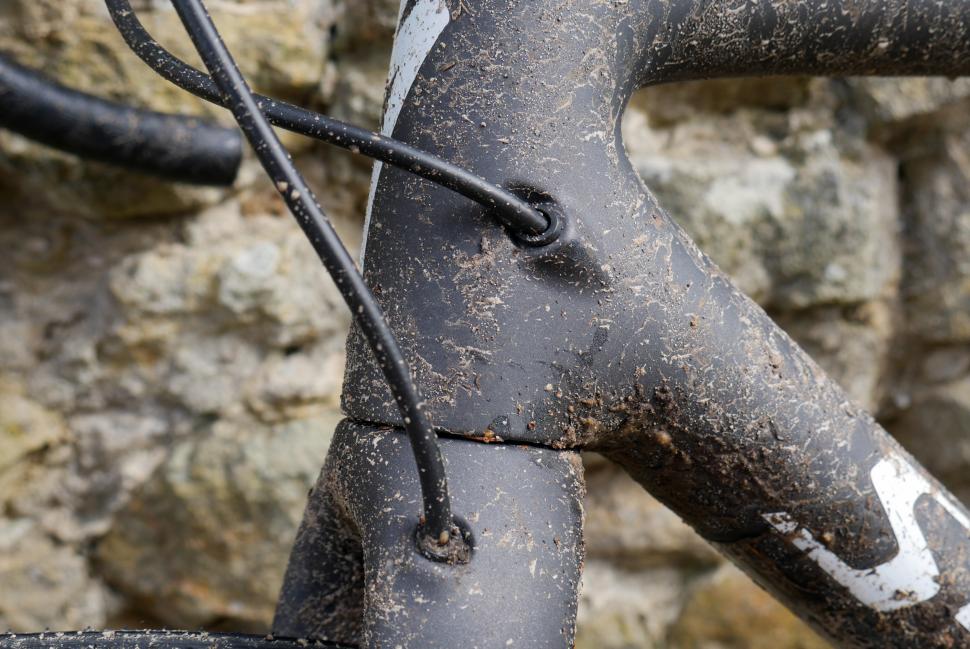
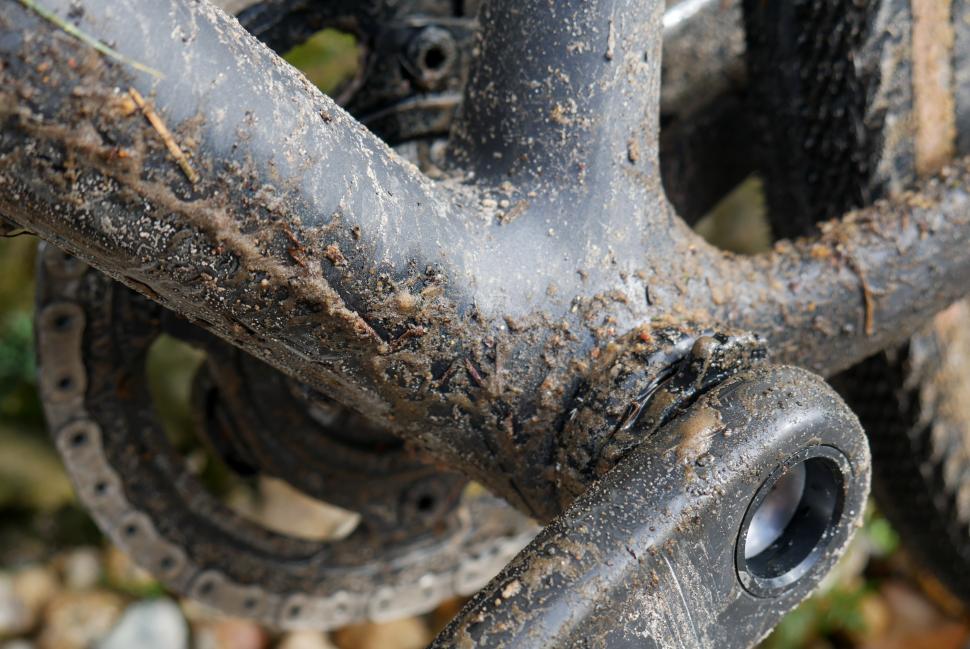
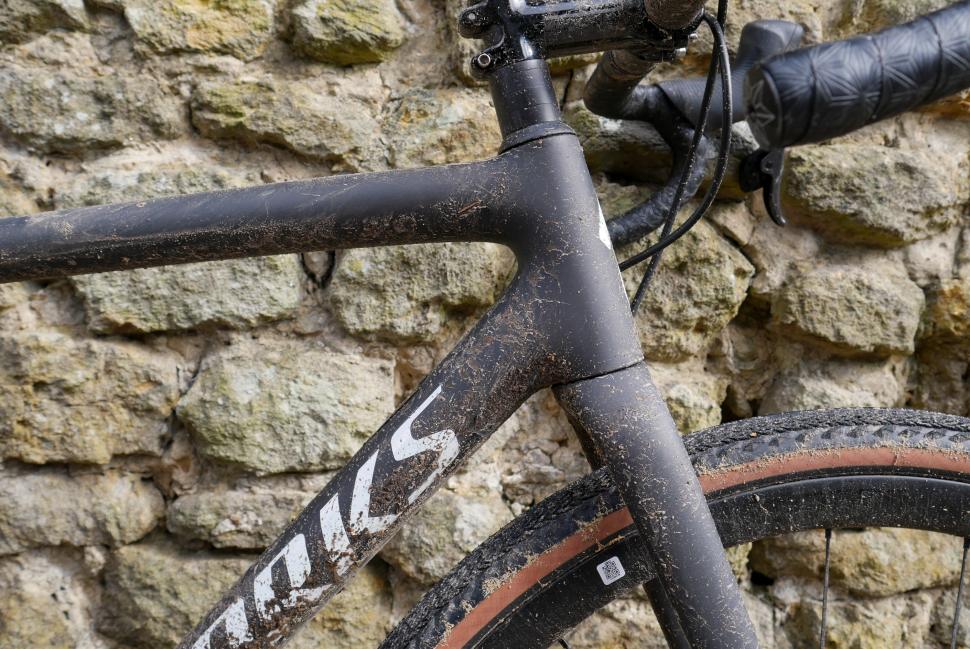
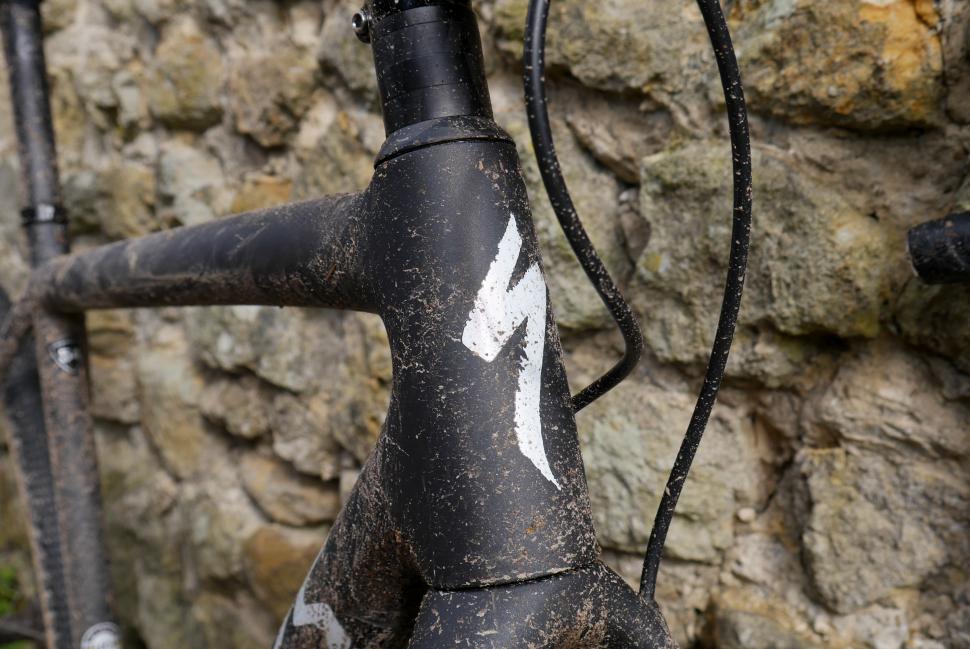
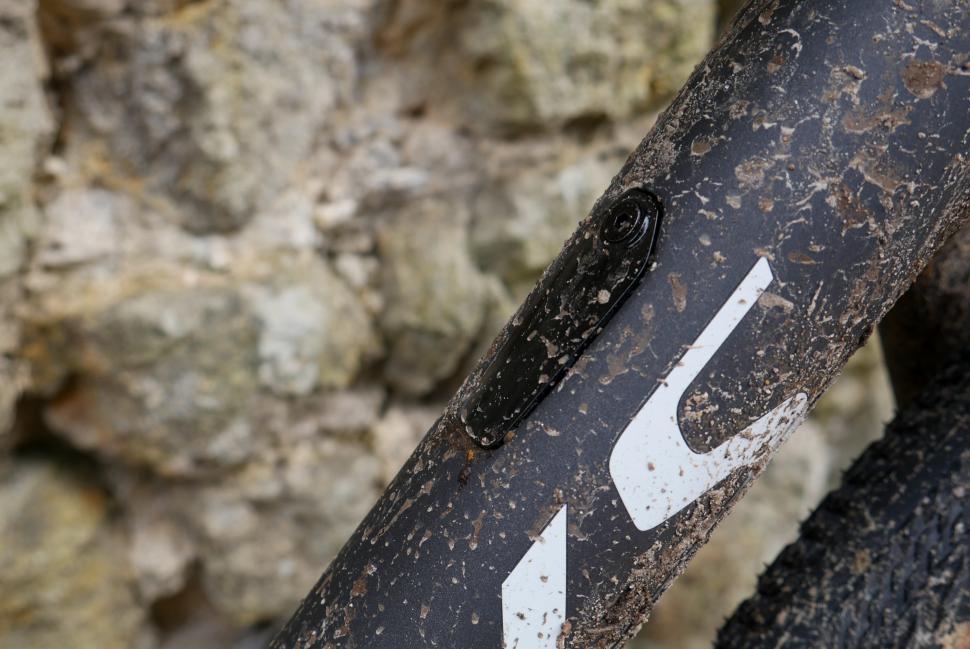

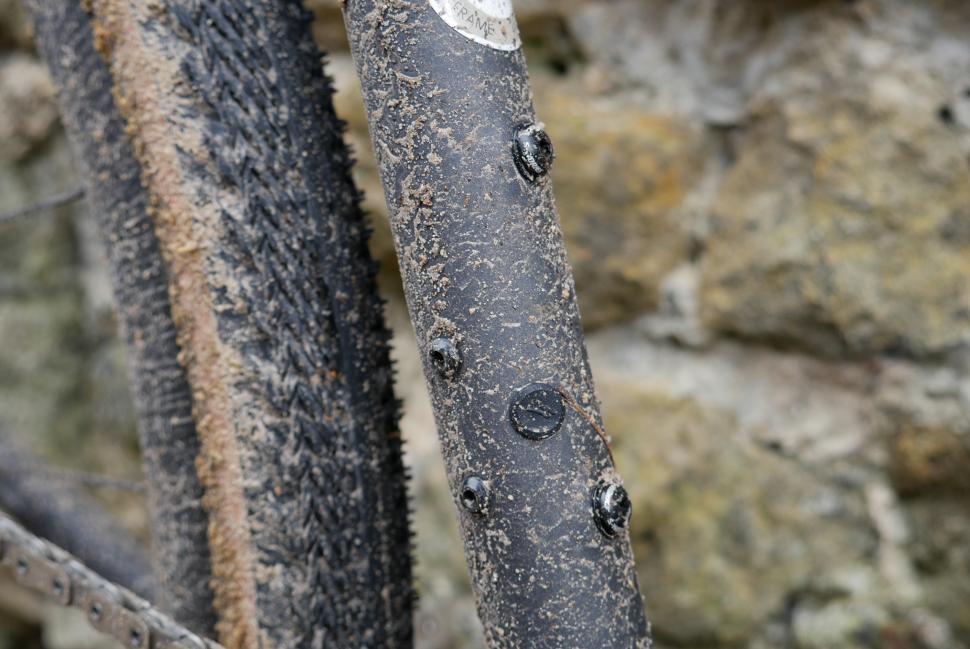
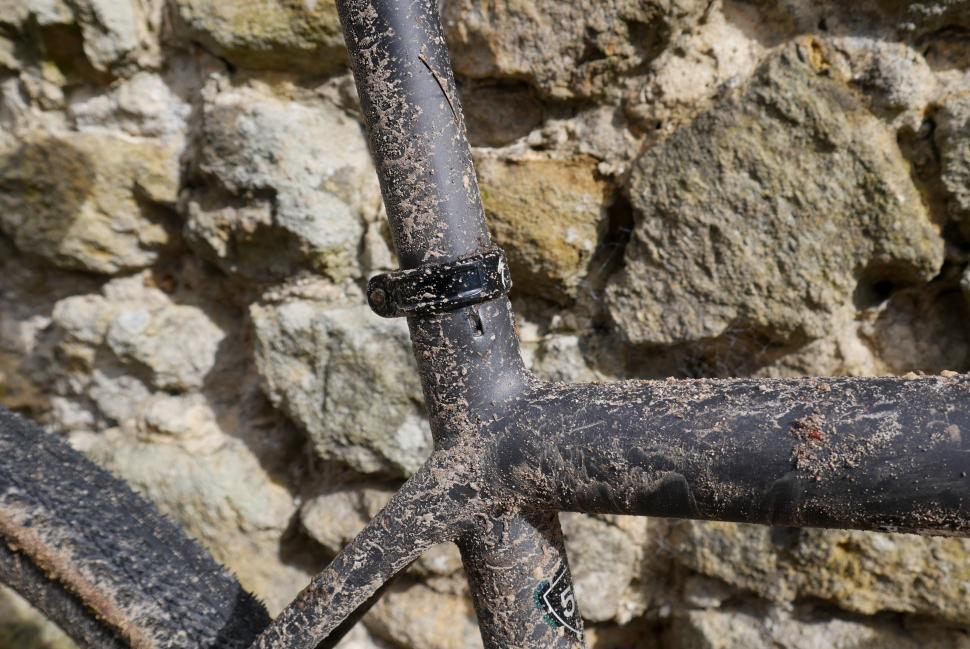
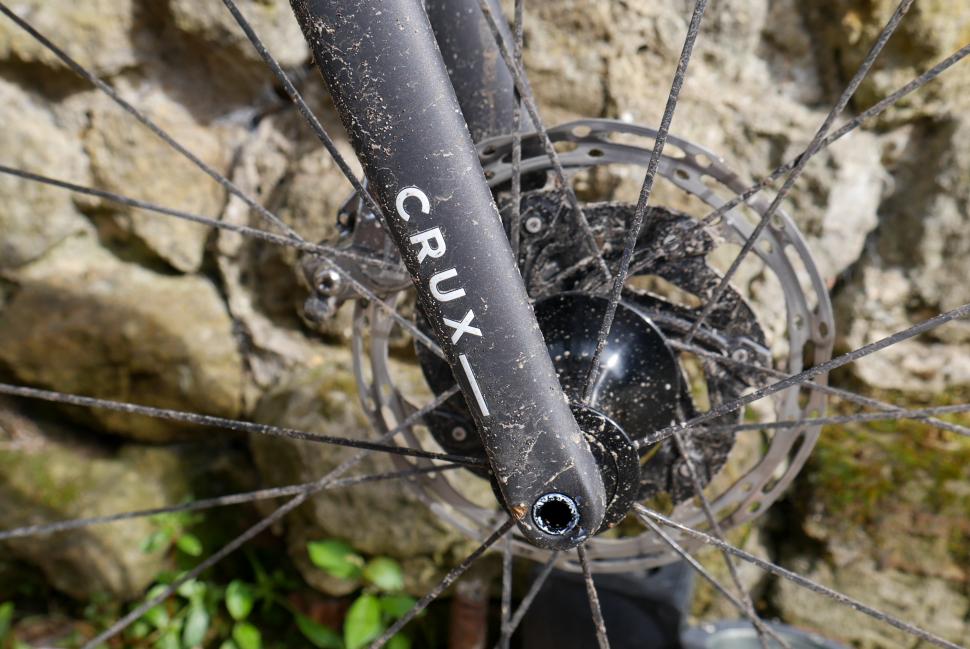
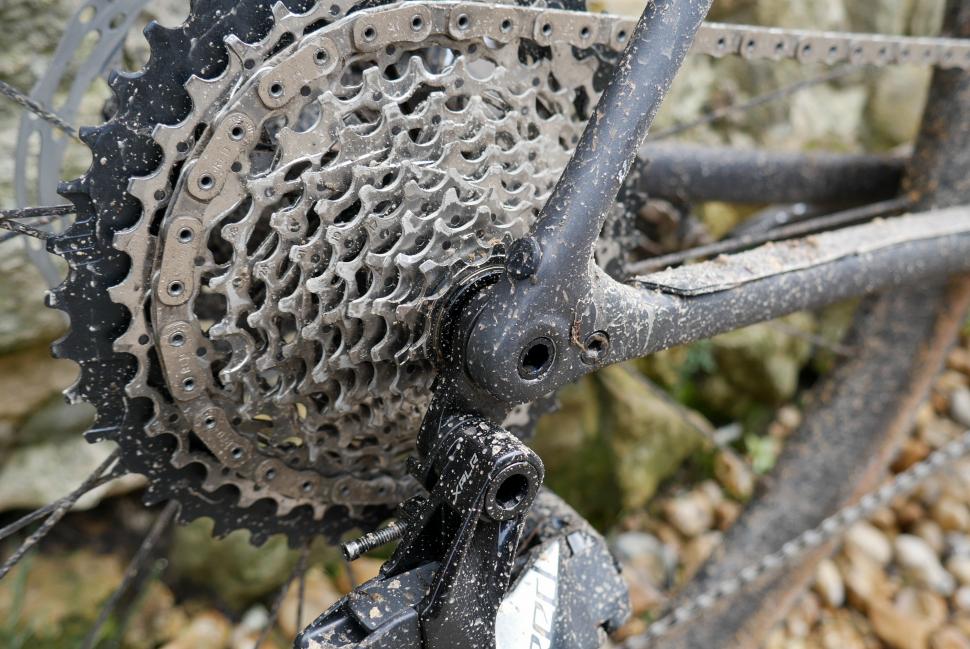
It's going to be a long, long time before the world starts running out of steel-framed bikes of any description. I pick up one or two a year for...
You can't enter BC races because you don't have a BC license?...
I didn't take him to be calling this particular incident a mere encounter but rather to be using "encounters" to mean "opportunities for violent...
Come on guys, appreciate all the entertainment you provide and discussion you provoke but really, two seconds just skimming your articles for...
Councils don't seem terrible keen ... maybe eburtthebike can give us the insider view in why not?...
Part the second ...
Another pathetic sentence for killing a cyclist....
You sound like the PR for hookless wheels. ...
...and maybe a third? Don't forget the M49 'ghost' junction: https://www.bristolpost.co.uk/news/bristol-news/work-m49-ghost-junction-...
What a shit world we've created.